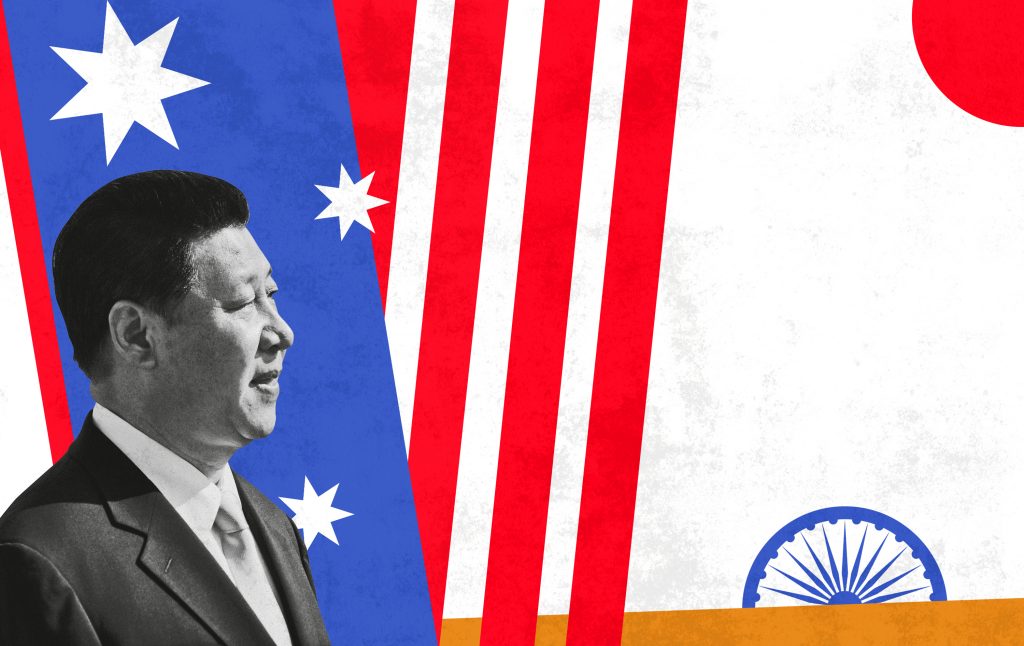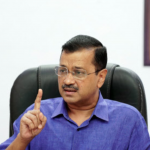By Girish Linganna
The leaders of the QUAD group—Australia, India, Japan and the United States—who had gathered in Hiroshima for a Group of 7 summit, delivered a thinly veiled swipe at Beijing’s behaviour at a summit in Hiroshima on Saturday (May 20, 2023).
US President Joe Biden and three of his counterparts in the group, in a joint statement, called for “peace and stability in the Indo-Pacific maritime domain” without mentioning China by name. “We strongly oppose destabilizing or unilateral actions that seek to change the status quo by force or coercion,” the statement said, in an apparent reference refer to China’s economic strategy to gain an upper hand over poorer nations, besides its military expansionism in the Pacific.
“We express serious concern at the militarization of disputed features, the dangerous use of Coast Guard and maritime militia vessels and efforts to disrupt other countries’ offshore resource exploitation activities,” the statement added, clearly pointing to China’s construction of bases on former offshore reefs and harassment of non-Chinese vessels in disputed waters.
The White House seems to be trying to prove that the conflict in Ukraine has not taken away attention from other significant issues in Asia. To do so, they are once again calling on ‘Quad’—commonly known as the Quadrilateral Security Dialogue (QSD)—a collaborative, strategized security forum formed by the United States, Japan, India and Australia.
This collaboration is to promote a free and open Indo-Pacific region, but the silent agenda is to oppose the growth of China, which the Chinese government, obviously does not approve of. Despite criticism of the Quad’s vagueness and its potential to irritate China, it is likely to become more influential as the USA’s and China’s differences remain and the Russian invasion of Ukraine fortifies Western security alliances.
Under the Biden Administration, the group has experienced a new surge of energy. When the four leaders met in Tokyo last year, they declared a scheme to counteract illegal fishing in the Indo-Pacific due to increased worries about the activities of Chinese boats. After the virtual Quad leaders’ summit in 2021, the four countries promised to fund India in order to speed up the production of Covid-19 vaccines and disperse them across Asia. This group had been dormant for years before being revived in 2017 by the US, then headed by Donald Trump, whose government was determined to face-off with China. After Biden took over from Trump, he stated he would collaborate more closely with allies while still maintaining a rigid approach towards China.
It is recalled in 2007, Shinzo Abe, who was then Japan’s Prime Minister, suggested the creation of a more structured dialogue between the four nations after having formed a ‘core group’ which assisted in coordinating relief operations in response to the 2004 Indian Ocean tsunami. This initial discussion was held during the annual Asia-Pacific forum hosted by the Association of South-East Asian Nations (ASEAN) and the four countries, plus Singapore, took part in an extended version of the Malabar naval exercises in the Bay of Bengal. However, the QSD fell apart shortly after its inception the following year.
The level of interest in the Quad alliance has been a subject of discussion, with some attributing it to former Australian Prime Minister Scott Morrison’s criticism of Kevin Rudd’s policy to “disconnect from the Quad”. However, Rudd countered that it was not as straightforward as that. He contended that the idea of the Quad fell out of favour when Japanese Prime Minister Shinzo Abe resigned in 2009 and his party lost power. During Rudd’s visit to the US as Prime Minister in 2008, the Quad was not even mentioned to him, and his Indian counterpart, Manmohan Singh, declared that India would not be involved in any containment of China. By 2017, when nationalistic governments had taken over Japan and India, the situation had once again changed. China’s aggressive behaviour towards India and Australia has encouraged the US and India to come closer and has also rekindled India’s enthusiasm for the Quad, a US official says.
China’s foreign ministry harshly criticized the Quad as being detrimental to its interests, describing it as harbouring a ‘Cold War and zero-sum mentality’ and drenched in a ‘military confrontation’ atmosphere. The spokesperson, Wang Wenbin, concluded that it was against the current trend of the times and thus, “doomed to be rejected”.
A Congressional Research Service report has alleged that the Quad is merely a platform for conversation that lacks any definitive organization or consensus. Additionally, there are those who have voiced concerns that this forum might develop into a NATO-style alliance that would agitate China. Tanvi Madan, a Brookings Institution senior fellow, notes that the Indian government has been uncertain about the relationship between Australia and China and, thus, hesitant to engage with the Quad. Nevertheless, last year, India made a symbolic gesture and invited Australia to take part in the Malabar military exercises.
At their summit in Tokyo in May 2022, the leaders agreed to promote a “free and open Indo-Pacific that is inclusive and resilient”. This commitment could help address a variety of global issues—such as climate change, cyber security and infrastructure cooperation. This last point is seen as a possible response to Chinese President Xi Jinping’s Belt and Road Initiative (BRI), which has been harshly criticized for allegedly trapping poor countries in debt. The Quad’s strategy for Asia is further demonstrated by the UK and US signing a defence agreement with Australia in 2021, called AUKUS, which includes conditions to provide Australia with nuclear submarines. This agreement happened after China mounted pressure against Australia. (IPA Service)
(The author is a Defence, Aerospace & Political analyst.)

 Congress Has To Join Opposition Wholeheartedly To Oppose Ordinance On Delhi
Congress Has To Join Opposition Wholeheartedly To Oppose Ordinance On Delhi 